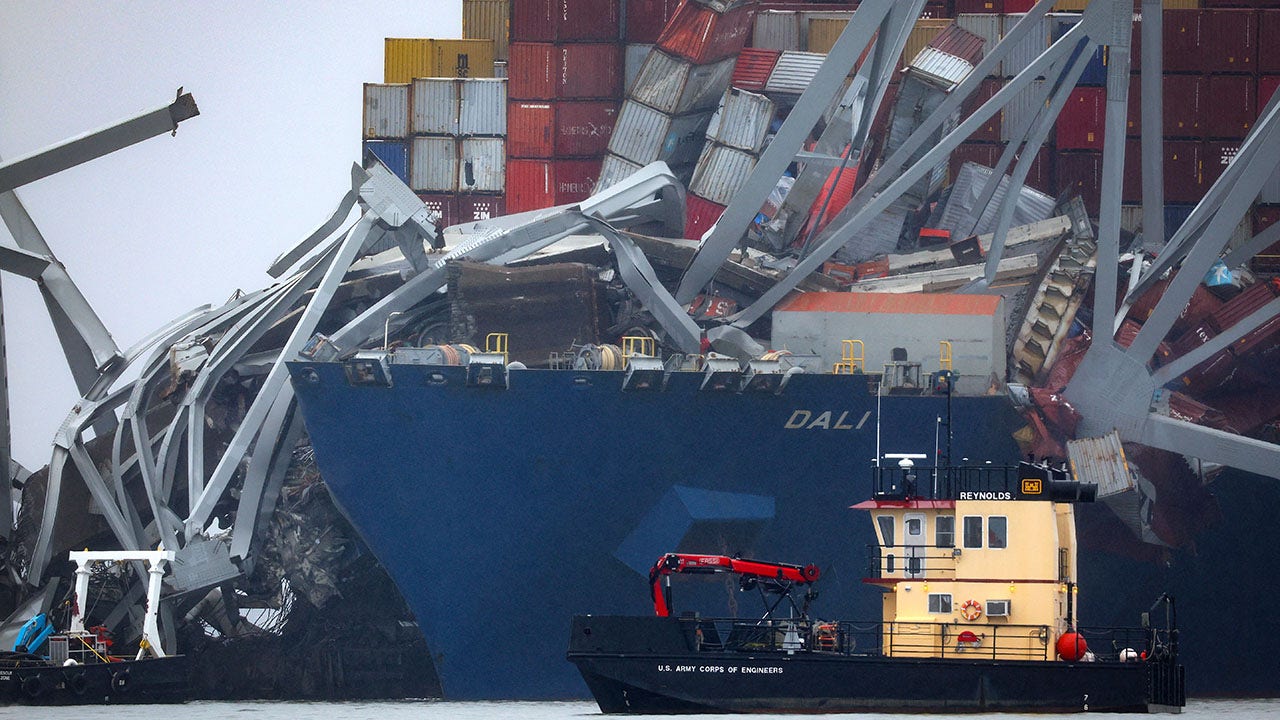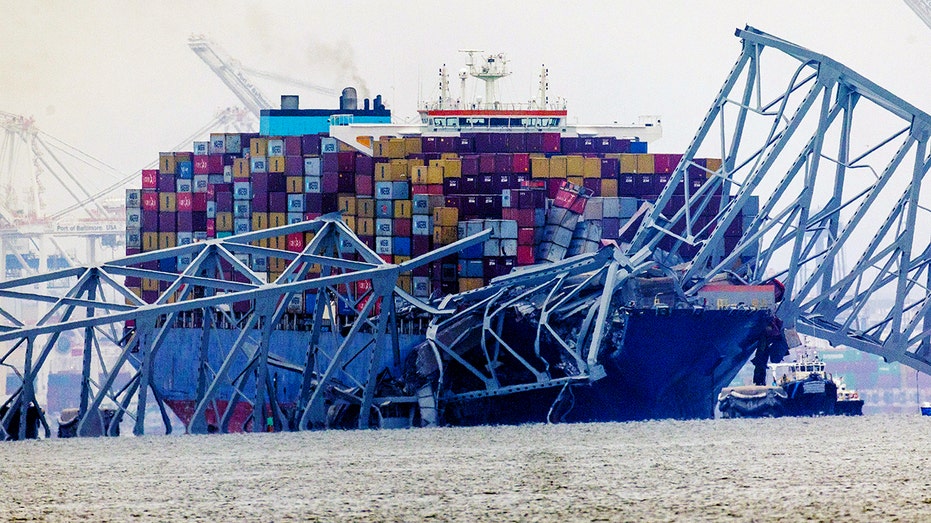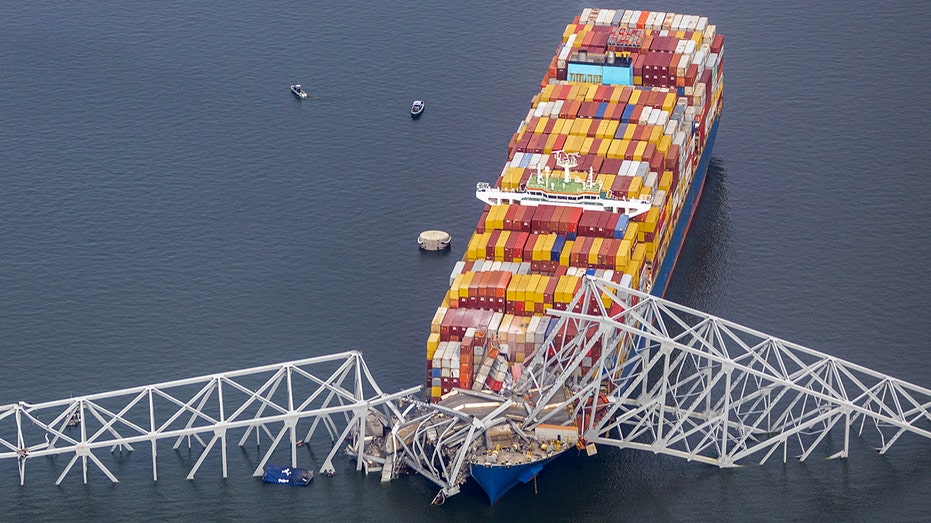Finance
Baltimore bridge collapse: Economists predict inflation ‘pinch’ for American consumers

Economists are predicting that Americans will feel a “pinch” in terms of their grocery bills, gas prices and other goods as local shipping and maritime traffic remain snarled Thursday following the collapse of the Francis Scott Key Bridge in Baltimore.
FreedomWorks Senior Economic Contributor Steve Moore told FOX Business on Thursday that the disaster is “clearly a blow to the supply chain problems that we already have under [President] Biden” and that “we could see prices rise because a huge percentage of the cargo on the East Coast that’s shipped in is at Baltimore Harbor.”
“People will feel a pinch in terms of their grocery bills, in their gas prices and things of that nature as a result of this bridge collapse,” he said. “The longer it goes on, the longer it takes to rebuild it, the worse the impact will be.”
“I think the real question is how long this takes to get the bridge back up. And it’s not just the cargo that comes in on ships, that Northeast corridor is dependent on these bridges, too, in terms of the trucking. Trucks are also a major part of our transportation infrastructure,” Moore added. “And to go around the bridge is going to add a lot of time to getting goods and services to the stores and to the warehouses. This is a blow to the economy.”
ECONOMIC IMPACT FROM BALTIMORE BRIDGE COLLAPSE WILL BE LONG-LASTING, TRADE GROUP WARNS
Francesco Bianchi, a professor of economics and department chair at John Hopkins University, also told FOX Business on Thursday that “prices of goods and services that directly or indirectly depend on shipments that go through the harbor will increase” but the “overall effect might be mitigated by re-directing the shipments to other major harbors on the East Coast.”
“However, the impact for the Baltimore economy is likely to be substantial,” he said, adding that “Baltimore is an important harbor and its inability to operate normally will push the overall supply chain a step closer to capacity, at a moment in which geopolitical risk already creates issues.”
“I expect a limited impact beyond the Baltimore area, as other harbors should be able to absorb the shipments that will be redirected from Baltimore,” Bianchi also said. “Without any doubt, it will be important to understand what exactly happened and how to prevent such an event to occur again, in Baltimore or elsewhere.”
Transportation Secretary Pete Buttigieg said during an appearance on Fox News on Wednesday that the U.S. has to be gearing up for the “supply chain implications” of the bridge collapse, which happened Tuesday after a Dali cargo ship struck one of its pillars.
BALTIMORE BRIDGE COLLAPSE SPOTLIGHTS PAST DISASTERS CAUSED BY SHIPS

“We are concerned about the local economic impact, with some 8,000 jobs directly associated with port activities,” Buttigieg later said during a White House press briefing. “And we’re concerned about implications that will ripple out beyond the immediate region because of the port’s role in our supply chains.”
Buttigieg said “between $100 and $200 million of value that comes through that port every day, and about $2 million in wages that are at stake every day,” calling it one of the areas the federal government is “most concerned about.”
“It’s one thing for a container or a vehicle or a sugar shipment to be absorbed or accommodated somewhere else,” he said. “But these longshore workers — if goods aren’t moving, they’re not working.”
The disaster has left six construction workers dead, two of which were pulled out of the waters of the Patapsco River on Wednesday. The other four remain unaccounted for.

The Dali was heading from Baltimore to Sri Lanka and appears to have suffered power issues in the moments leading up to the bridge pillar collision.
Read the full article here


















